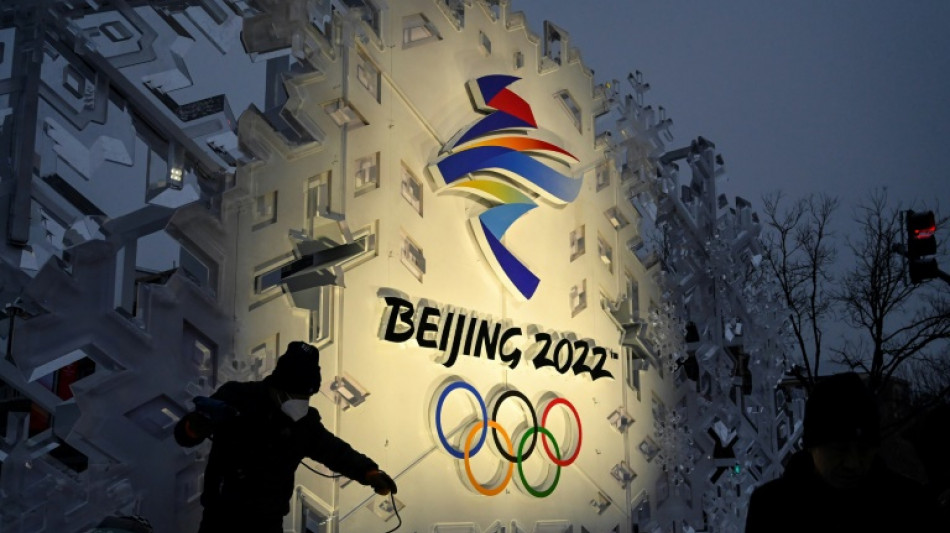
-
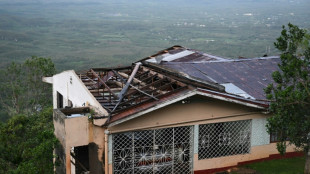 'Nowhere to sleep': Melissa upends life for Jamaicans
'Nowhere to sleep': Melissa upends life for Jamaicans
-
Irish octogenarian enjoys new lease on life making harps
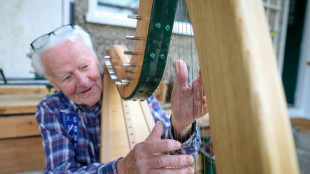
-
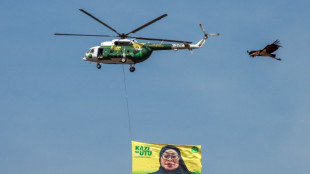 Tanzania blackout after election chaos, deaths feared
Tanzania blackout after election chaos, deaths feared
-
G7 meets on countering China's critical mineral dominance
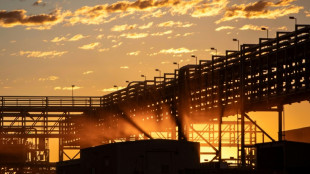
-
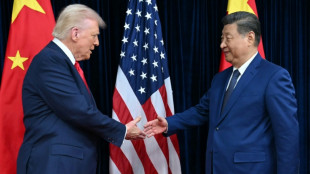 Trump hails tariff, rare earth deal with Xi
Trump hails tariff, rare earth deal with Xi
-
Court rules against K-pop group NewJeans in label dispute
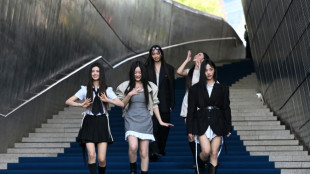
-
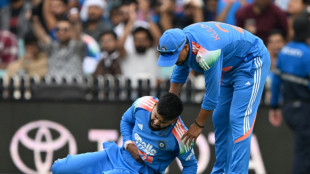 India's Iyer says 'getting better by the day' after lacerated spleen
India's Iyer says 'getting better by the day' after lacerated spleen
-
Yesavage fairytale carries Blue Jays to World Series brink

-
 Bank of Japan keeps interest rates unchanged
Bank of Japan keeps interest rates unchanged
-
Impoverished Filipinos forge a life among the tombstones

-
 Jokic posts fourth straight triple-double as Nuggets rout Pelicans
Jokic posts fourth straight triple-double as Nuggets rout Pelicans
-
UN calls for end to Sudan siege after mass hospital killings

-
 Teenage Australian cricketer dies after being hit by ball
Teenage Australian cricketer dies after being hit by ball
-
As Russia advances on Kupiansk, Ukrainians fear second occupation

-
 Trade truce in balance as Trump meets 'tough negotiator' Xi
Trade truce in balance as Trump meets 'tough negotiator' Xi
-
China to send youngest astronaut, mice on space mission this week

-
 Yesavage gem carries Blue Jays to brink of World Series as Dodgers downed
Yesavage gem carries Blue Jays to brink of World Series as Dodgers downed
-
With inflation under control, ECB to hold rates steady again

-
 Asia stocks muted with all eyes on Trump-Xi meeting
Asia stocks muted with all eyes on Trump-Xi meeting
-
Personal tipping points: Four people share their climate journeys

-
 Moto3 rider Dettwiler 'no longer critical' after crash: family
Moto3 rider Dettwiler 'no longer critical' after crash: family
-
US economy in the dark as government shutdown cuts off crucial data

-
 Trump orders nuclear testing resumption ahead of Xi talks
Trump orders nuclear testing resumption ahead of Xi talks
-
'Utter madness': NZ farmers agree dairy sale to French group

-
 Samsung posts 32% profit rise on-year in third quarter
Samsung posts 32% profit rise on-year in third quarter
-
30 years after cliffhanger vote, Quebec separatists voice hope for independence

-
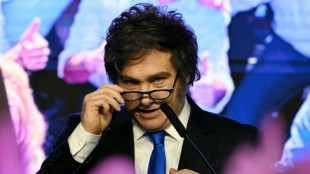 Taxes, labor laws, pensions: what Milei wants to do next
Taxes, labor laws, pensions: what Milei wants to do next
-
South Sudan's blind football team dreams of Paralympic glory
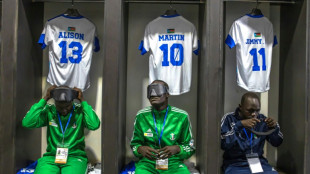
-
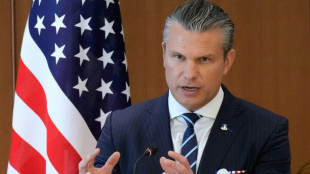 US says 4 killed in new strike on alleged Pacific drug boat
US says 4 killed in new strike on alleged Pacific drug boat
-
What we do and don't know about Rio's deadly police raid
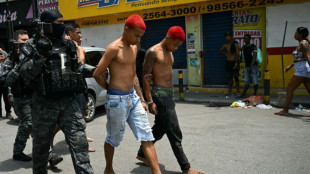
-
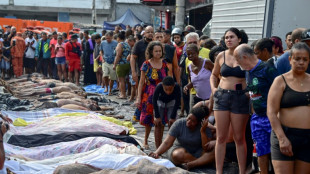 'They slit my son's throat' says mother of teen killed in Rio police raid
'They slit my son's throat' says mother of teen killed in Rio police raid
-
Arteta hails 'special' Dowman after 15-year-old makes historic Arsenal start

-
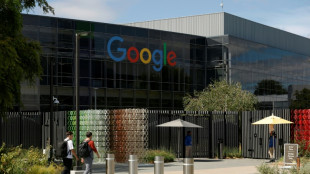 Google parent Alphabet posts first $100 bn quarter as AI fuels growth
Google parent Alphabet posts first $100 bn quarter as AI fuels growth
-
Underwater 'human habitat' aims to allow researchers to make weeklong dives
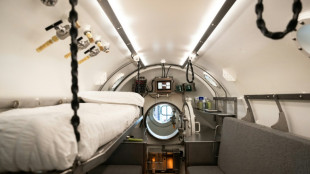
-
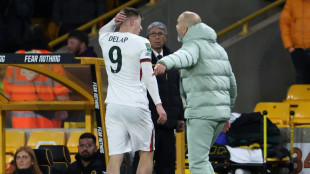 Maresca slams Delap for 'stupid' red card in Chelsea win at Wolves
Maresca slams Delap for 'stupid' red card in Chelsea win at Wolves
-
'Non-interventionist' Trump flexes muscles in Latin America
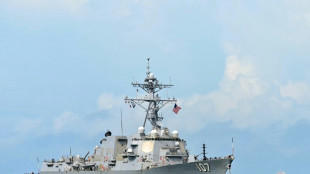
-
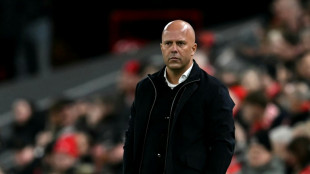 Slot defends League Cup selection despite not meeting 'Liverpool standards'
Slot defends League Cup selection despite not meeting 'Liverpool standards'
-
'Poor' PSG retain Ligue 1 lead despite stalemate and Doue injury
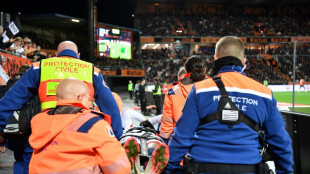
-
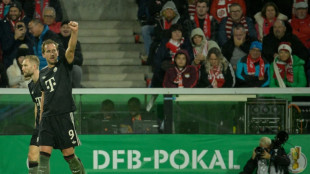 Kane nets twice in German Cup as Bayern set European wins record
Kane nets twice in German Cup as Bayern set European wins record
-
Liverpool crisis mounts after League Cup exit against Palace

-
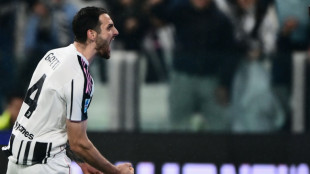 Juve bounce back after Tudor sacking as Roma, Inter keep pace with leaders Napoli
Juve bounce back after Tudor sacking as Roma, Inter keep pace with leaders Napoli
-
Kane scores twice as Bayern set European wins record
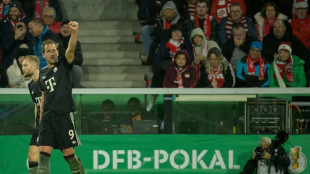
-
 Radio Free Asia suspends operations after Trump cuts and shutdown
Radio Free Asia suspends operations after Trump cuts and shutdown
-
Meta shares sink as $16 bn US tax charge tanks profit
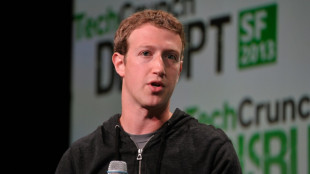
-
 Dollar rises after Fed chair says December rate cut not a given
Dollar rises after Fed chair says December rate cut not a given
-
Google parent Alphabet posts first $100 bn quarter as AI drives growth

-
 Rob Jetten: ex-athlete setting the pace in Dutch politics
Rob Jetten: ex-athlete setting the pace in Dutch politics
-
Juve bounce back after Tudor sacking as Roma keep pace with leaders Napoli

-
 Favorite Sovereignty scratched from Breeders' Cup Classic after fever
Favorite Sovereignty scratched from Breeders' Cup Classic after fever
-
Doue injured as PSG held at Lorient in Ligue 1


Olympic 'curse' strikes again as Beijing costs mount
The "curse" of Olympic overspending looks set to strike again at the Beijing Games, with stringent Covid measures and loss of ticket sale revenues pushing up costs for China.
It's not unusual for nations to find the bill for hosting an Olympics ballooning, but the pandemic and China's zero-Covid approach has made preparations for the February 4-20 Winter Games particularly difficult.
With increasingly strict rules imposed as domestic outbreaks spread in China, organisers announced last week that they will not sell tickets to the public because of the "complicated" Covid situation.
Instead, invitations will be given to select people. The organising committee had originally calculated ticketing revenue to be worth $118 million.
That total was already in question after it was confirmed last year there would be no international spectators at the Games because of China's weeks-long quarantine requirements and closed borders.
Budget was a key part of China being awarded the Games, with Beijing winning the bid over only one other contender as other cities backed out over high costs.
Beijing Olympics communications manager Zhao Weidong recently admitted to reporters that the pandemic might mean a need to "increase some expenses".
However he pointed out that others could be reduced, without giving specifics.
- 'Screwed' -
In 2015, Beijing said it was counting on a budget of just over $3 billion, which included the costs of organising and building sports facilities.
But excluded was a huge amount of new infrastructure needed, including the construction of a high-speed rail line between Beijing and the ski slopes.
The cost of hosting the Olympics usually doubles between the award date and the opening ceremony, experts say.
Wladimir Andreff, a specialist in sports economics from the University of Paris 1 Pantheon-Sorbonne, called it the "curse" of successful Olympics bids.
"Whoever wins them gets screwed," he said.
To get the Games all candidates "systematically underestimate the costs and overestimate the profits" expected, Andreff added.
The pandemic has brought additional problems and costs.
Last summer's Covid-delayed Tokyo Olympics, the first to be held in coronavirus times, ended up at around twice the budget proposed in the city's original 2013 bid.
That was even as organisers said they had saved cash by simplifying events and avoiding the cost of hosting fans, with most events closed to spectators.
- 'Certain shortfall' -
In Beijing, athletes, support staff, volunteers and journalists will all be kept in a "closed loop" to prevent any contact with the population and limit the risk of contamination.
This "bubble" -- which is considerably stricter than the one in Tokyo -- requires a battery of measures to isolate Games participants from the outside world, as well as daily Covid screening tests.
Andreff said the absence of international spectators should not be underestimated.
"Hundreds of thousands of foreign tourists who were expected will not come," said Andreff. "There will be a certain shortfall due to the pandemic."
But Andrew Zimbalist, specialist in sports economics at Smith College in the United States, cautioned that even without the virus, assumptions the Games draw more tourists were not necessarily correct.
In 2008 -- when Beijing hosted a Summer Olympics -- tourism dropped by around a fifth, he said, amid heavy security measures.
"Normal tourists were discouraged from going to Beijing 2008 because they were concerned about congestion, high prices and the possibility of terrorism or other potentially dangerous incidents," he said.
"So normal tourism goes down as Olympic tourism goes up."
- All about image -
Beijing is hoping for a financial boost domestically that will last long beyond the Games.
The government committed to introducing 300 million Chinese to winter sports –- a goal achieved, according to official figures -- which they hope will generate a profitable future industry.
But this also means new infrastructure.
The Yanqing resort, for example, was built especially for the Olympics -- constructing the first track in China for bobsleigh, skeleton and luge from scratch.
Matthieu Llorca, lecturer at the University of Burgundy, said additional costs will probably be linked to pandemic control and not integrated into the final Olympics budget.
He said this reallocation will allow authorities to claim the Games were both "successful and at a lower cost".
Ultimately, he said, China -- the world's second-largest economy -- probably won't worry too much about the money.
"They don't look at how much it will cost," he said.
"They will look at the image of the country."
E.AbuRizq--SF-PST
